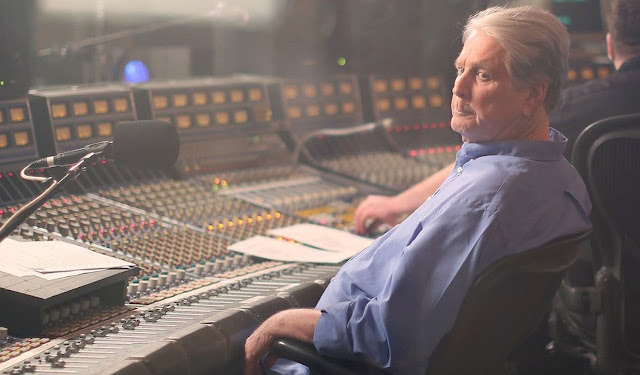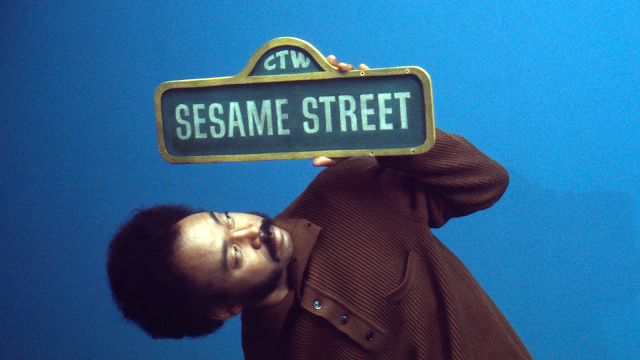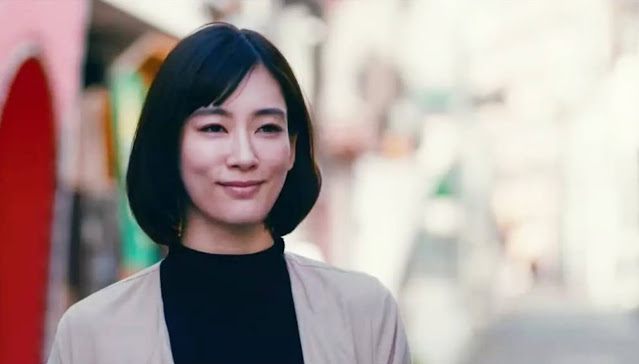Directed by Brent Wilson
ChinoKino score: B+
Review by Allan Tong
Five minutes into this new documentary about Brian Wilson, I thought, Oh, no, not another Brian bio. The opening sings the praises of the genius behind the 1966 masterpiece, Pet Sounds, how his songs fueled The Beach Boys' rise to stardom, and he has forever left his mark on popular music. As a Brian fan, sure, I agree with all that, but I've also heard this before in other docs.
Then, Long Promised Road takes viewers on a different ride. Literally. The rise is with Brian and longtime friend Jason Fine who get in a car and drive to Brian's old haunts around Los Angeles as they spin tunes by the Beach Boys (as a group and individually), and Brian reminisces. This is the key to the film where Brian opens up about his troubled family, marriage, career, and personal and legal battles. Now, this is new. The film captures the shy Brian unguarded through a camera resting unobtrusively on the car's dashboard. Fine first met Brian as a journalist profiling the musician for Rolling Stone magazine, and they've remained buddies ever since. Fine gently coaxes unfiltered thoughts and reactions out of Brian that will surprise casual and hardcore fans alike.
The ride covers the usual bases, starting with Brian's abusive father. The film excerpts an infamous 1965 studio clash between (drunk, belligerent) father and son during the recording of Help Me, Rhonda and stops outside his childhood home. Here, a wall sculpture now honours his band. The ride takes him to his old luxury home, where folks like Sly Stone dropped in (and passed out after getting stoned). The ride goes to more innocent places, like Paradise Cove where the Beach Boys posed for the cover of their first album (a plaque now marks the spot). Through it all, Brian makes unguarded reflections, great and small, about his career highs, disappointments, battles with mental illness, drug use, and his love for his brothers. These are simply the highlights of this film.
The most revealing moment comes when Fine informs Brian that former Beach Boys' manager, Jack Rieley died a few years ago. Brian is speechless, stunned, and tears well in his eyes as he processes the stunning news. After some heavy pauses, Brian announces that his heart is broken--and we feel for him.
Unnecessarily, the film cuts away to Brian's famous admirers (Bruce Springsteen, Elton John, Linda Perry, Taylor Hawkins, Don Was) to tell us how great Brian's music is. This interrupts the flow of Brian's ride and adds little to our overall understanding of him. Granted, these stars say nothing inaccurate, and it's a thrill to hear Sir Elton recall going ga-ga over his idol when they met in the 1970's.
Another issue with the film is that it meanders, also jumping back to Brian rehearsing and performing with his current band. I get it: Brian remains an active, creative artist to this day, but again these jumps break up the film's overall flow and don't build up to anything.
However, vintage film clips are chosen well. One interesting clip is an early interview with the young Beach Boys where brother Dennis flirts with a female interviewer. This nicely detours into a sequence centering on the handsome bad boy, and Brian explains how close they were. Cocaine was one bond, but it went deeper than that. One commentator points out that playboy Dennis and introverted Brian secretly envied each other, though the film glosses over Dennis' battles with addiction which eventually killed him at age 39.
Finally, the film deserves credit for exploring the theme of mental illness with sensitivity. Brian has long suffered from schizoaffective disorder, in which he hears bad voices in his head and wrestles with periodic depression. A link between his father's abuse (mental as well as physical) is strongly implied. This disorder to is stated at the start of this film and colours everything we then see. Brian's condition led to disgraced therapist Eugene Landy taking over Brian's life and even career in the 1970's through the early 1990's, until Brian successfully sued him. Landy (who died in 2006) is seen only in still photos, thankfully.
In the end, you admire Brian for surviving his long, hellish journey to somehow keep making music while also raising five adopted children. (We briefly see his two daughters from his first marriage.) Director Wilson (no relation to Brian) indeed takes us on a journey through the wonderful, harrowing and unique life of a special musician.
Brian Wilson: Long Promised Road is now available on VOD.













